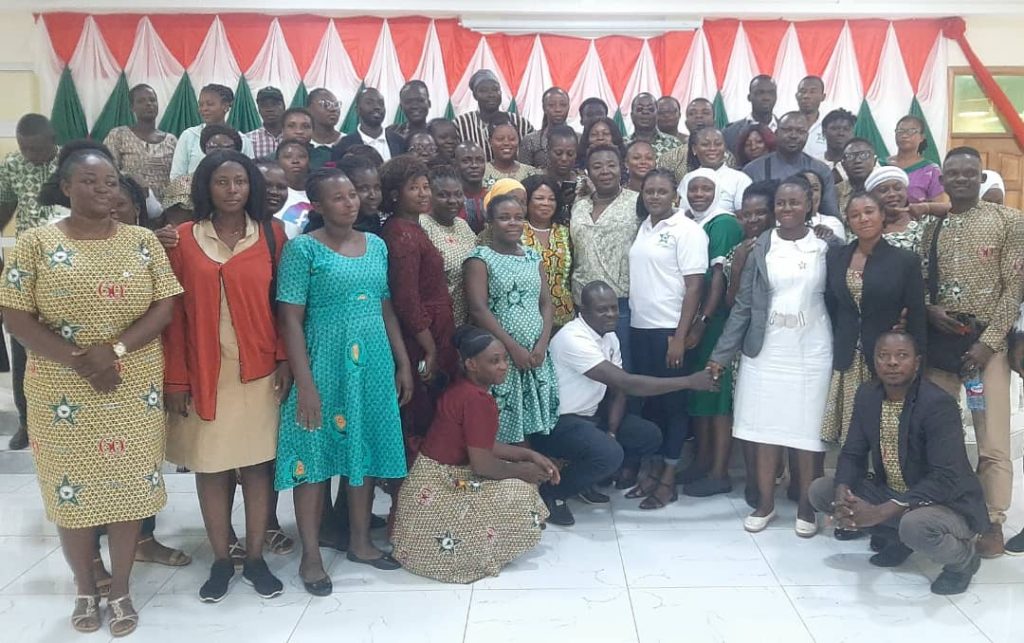By Godfred A. Polkuu
Pusu-Namongo (U/E), Aug. 10, GNA-Mrs Irene Mensah-Jacobs, the National Coordinator of the Ghana Registered Nurses and Midwives Association (GRNMA) Women and Gender Committee has emphasized the need for women to frequently screen for cervical cancer.
She urged them, especially nurses and midwives not to shy away from cervical cancer screening, saying “One of the major steps in treating cervical cancer is early detection and early treatment. Hence our advocacy for early screening.
“I want to encourage all our women to periodically visit the hospitals for screening and possible vaccination,” Mrs Mensah-Jacobs said at the 2023 Regional Women and Gender Seminar of the GRNMA held at Pusu-Namongo, in the Talensi District of the Upper East Region.
The seminar was on the theme: “Empowering women in Ghana to take control of their lives through vaccination against cervical cancer.”
It brought together Regional, Municipal and District executives and some members of the Association from across the Region.
Giving statistics of cervical cancer infections in Ghana, Mrs Mensah-Jacobs said in 2021, a total of 2797 women were diagnosed with cervical cancer, and out of the number, 1699 died.

“In 2018, we had 1717, and 2019, we had 1699. So by the years, there is a serious upsurge. It is therefore very imperative to discuss this among women so that we can take serious steps to curve this menace.
“Unfortunately, some of our women in Ghana still believe cervical cancer is spiritual, and therefore would visit churches and camps for healing. They come to us only when they are in the end stages and we lose them,” she said.
Madam Tangoba Abayage, a former Upper East Regional Minister, who spoke on Gender Equality and Women Leadership, as the Special Guest of Honour, said with all kinds of gender definitions, the world was gradually shifting from the clear distinction between sex and gender.
“As a result, gender is interchanged with sex,” Madam Tangoba, also a former Ambassador to Italy and Gender Advocate, said.
She said the overall objective of gender equality was to have a society in which women and men enjoyed the same opportunities, rights and obligations in all spheres of life as it was intrinsically linked to sustainable development and vital to the realization of human rights for all.
According Madam Abayage, gender equality was not only a human right issue but a necessary foundation for a peaceful, prosperous and sustainable world, and insisted that women were entitled to live in dignity and freedom from fear.
She said empowered women contributed to the health and productivity of families and communities, and improved prospects for the next generation.
“Despite solid evidence demonstrating the centrality of women’s empowerment to realizing human right, reducing poverty, promoting development and addressing the world’s most urgent challenges, gender equality remains an unfulfilled promise,” she said.
Mr Thomas Lambon, the Regional Chairman of the GRNMA, said the theme for the seminar was most appropriate and timely as cervical cancer was one of the topmost causes of fatalities among gynaecological cancers worldwide.
He said the seminar was intended to celebrate women and discuss ways to combat the menace of cervical cancer, and urged women to take advantage of the opportunities at various health facilities to get screened for cervical cancer.
GNA